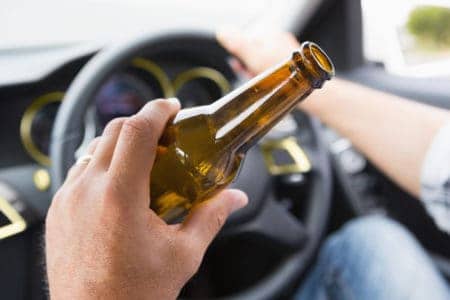Most cities and counties in Texas are committing greater resources to combat drunk driving. “No refusal” weekends allow law enforcement agents to obtain a warrant to take blood even if the accused driver refuses to submit to breath and/or blood tests.
Don’t be misled, though. In reality, law enforcement officers use no refusal policies every day of the year in greater Houston.
That’s because law enforcement officers really aren’t limited to weekends to request search warrants to take blood from suspected drunk drivers. They’re merely on high alert during these well-publicized periods.
Are you facing a DWI charge in Texas?
Contact defense lawyer Matthew Sharp about your case »
What Does “No Refusal” Mean?
If a driver suspected of drunk driving refuses to submit to blood testing, Texas law enforcement professionals may, in some instances, forcibly obtain the desired specimen.
That fact is certainly shocking. Most clients want to know “How can police officers take blood from my arm if I didn’t agree to it?”
To better understand no refusal, let’s start by discussing how the government has the right to take blood from your arm.
Law enforcement must test the suspected driver’s blood alcohol content (BAC) in the following scenarios:
- If the driver 1) was intoxicated while operating a vehicle in a watercraft or public place;
- If he or she 2) violated Alcoholic Beverage Code § 106.41 (in which case the police officer must take a breath or blood specimen if the driver is arrested for an offense under Texas Penal Code Chapter 49, when the driver refuses the law enforcement agent’s request to voluntarily submit to breath or blood testing);
- If 3) the officer “reasonably believes” the accident resulted from such an offense in which a) an individual died/might die, b) an individual other than the suspect has suffered a serious bodily injury, or c) a person other than the accused has sustained a bodily injury and was transported to a medical facility or hospital for treatment;
- If 4) the accused was arrested under § 49.045 of the Texas Penal Code (child passenger at the time of arrest) or, on arrest, the officer has “reliable information” that the accused was a) previously convicted of/placed on community supervision for an offense under Texas Penal Code § § 49.045, 49.07, or 49.08 (or he or she committed an offense under another state’s laws that are substantially similar to Texas’ laws, or b) he or she was convicted on at least two occasions (or placed on community supervision) for offense(s) described under § § 49.04, 49.05, 49.06, or 49.065 of the Texas Penal Code (or for similar offenses under another state’s laws that are substantially similar to these sections).
What is “implied consent”?
Texas Transportation Code 724.011 also provides law enforcement with the option to take a driver’s blood or breath sample because of implied consent. That is, the officer who believes the suspect is driving under the influence already has his or her consent to obtain a blood or breath sample before he or she verbally consents.
Implied consent law in Texas enables the state to use the driver’s refusal to submit to sobriety tests into evidence that may later be used against him or her in court.
The Transportation Code also states that when specimens aren’t obtained under the mandatory draw provisions in 724.012(b), they can’t be used against the defendant in trail over his or her objections if he or she revoked implied consent to the search and seizure of his or her blood or breath.
Revocation of Implied Consent in Texas
A prosecutor or law enforcement officer in Texas will argue that, when the accused was granted a driver’s license, he or she signed a form providing implied consent to a blood or breath test in the event a peace officer requests him or her to do so.
They will remind the driver that he or she already agreed to provide a blood or breath sample at a traffic stop and that, if the driver refuses, he or she will have the driver’s license suspended for up to 180 days.
This is true.
However, the officer probably won’t remind the driver that, even if he or she submits to the request for a breath or blood sample, the driver’s license might be suspended for 90 days.
For that reason—consent or no consent—it’s likely that the Texas Department of Public Safety (DPS) will attempt to take away the accused drunk driver’s license. The matter to consider is whether the suspension will be for 90 days or up to 180 days. Keep in mind that an experienced drunk driving lawyer can help the driver to fight the driver’s license suspension as well as DUI/DWI charges.
Here’s the bottom line:
- Drivers agree to implied consent in Texas but the Texas legislature provides the driver with the right to take away (revoke) his or her consent to do so—at any time.
- Nothing in Texas law requires the driver to submit to breath or blood testing if he or she is stopped for DWI.
- The accused driver can and should refuse to submit to testing. The laws of Texas allow the driver to withdraw his or her consent at any time under 724.013.
How does this relate to “no refusal”?
“No refusal” does not mean the accused driver can’t refuse a peace officer’s requests for a blood/breath sample. The accused may always maintain his or her constitutional right to refuse any test and/or to answer questions.
In other words:
- If the driver does refuse, the officer will request a warrant to obtain the driver’s blood sample. (Chances are also good that a judge will grant the request.)
- A warrant is a type of instrument that enables law enforcement to intrude upon the accused’s private space (e.g., his or her body and/or belongings). Such a warrant enables the officer to take a blood specimen under the Fourth Amendment of the U.S. Constitution if the officer presents probable cause that the driver is impaired.
- The law enforcement officer presents the probable cause statement to a judge in order to obtain a specimen via a sworn affidavit containing the facts supporting his or her assessment that 1) a crime has occurred, 2) contraband to the crime, and 3) where these may be located.
- If the driver consents to testing because he or she suspects the officer will obtain the warrant, he or she waives all future rights.
- That’s important, because he or she can’t later argue about the matter in court.
Clearly, the answer to “How does the government get my blood sample?” is that 1) the driver is presumed to agree to provide a sample, but 2) he or she can revoke consent unless the officer is mandated to draw blood under the law.
Why does the “no refusal” program exist in Texas?
Texas’ no refusal programs expedite and facilitate law enforcement’s ability to obtain a warrant after a suspect refuses to voluntarily provide it. The arresting law enforcement agent, local prosecuting attorneys, and magistrates remain on call to process officers’ affidavits. They issue required warrants to obtain blood samples.
Texas’ no refusal programs are designed to support law enforcement professionals in their mission to reduce the number of drunk drivers on the roads. Unfortunately, some drivers face arrest and charges even though they’re not legally impaired or intoxicated.
The laws of Texas provide the steps that must be followed. If these procedural guidelines aren’t strictly followed, charges against the accused may be dismissed.
If the government obtains a blood sample, it must proceed to test the sample to determine the driver’s blood alcohol level. The state must conduct the blood test according to known guidelines. If it fails to do so, the evidence may not be allowed into evidence over an experienced defense lawyer’s objection.
Contact DWI attorney Matt Sharp to discuss your case »
Texas No Refusal DUI Policies
It’s important for Texas drivers to understand no refusal enforcement policies.
If a driver is suspected of drunk driving in Texas and he or she provides a breath sample to measure his or her BAC, a positive result (at or above 0.08 percent) will trigger an arrest. In comparison, his or her refusal to submit to testing is likely to result in a driver’s license suspension.
Before no refusal policies were enacted, it usually took much longer for the arresting officer to obtain a warrant to forcibly obtain a sample from the suspect.
In the interim, the accused driver sobered up an approximately 0.01 percent of blood alcohol content per hour. He or she might be below the 0.08 percent BAC threshold because of the time needed by the officer to obtain a warrant.
To speed up the process, legislators provide law enforcement officers with access to on-call judges. He or she can submit probable cause to the on-call magistrate and obtain an electronic warrant that’s sent to his or her tablet or smart phone.
This no refusal policy solves some of the time delay issues officers previously faced in obtaining paper warrants.
Although the accused driver still has the right to refuse a BAC breath or blood test when a no refusal policy is in effect, it’s essential to contact an experienced Texas DUI lawyer as soon as possible. If convicted, the defendant may face significant jail time and fines.
Contact an Experienced DWI Attorney in Houston TX
If you or someone you care about is facing DUI/DWI charges, contact The Law Office of Matthew D. Sharp. We have successfully challenged state evidence in DWI cases in both mandatory blood draws and warrant blood draws.
If you’re facing DWI charges and your blood was forcibly drawn, you need a skillful lawyer to defend your legal rights. Contact The Law Office of Matthew D. Sharp at 713-868-6100 to schedule an initial case review now.






